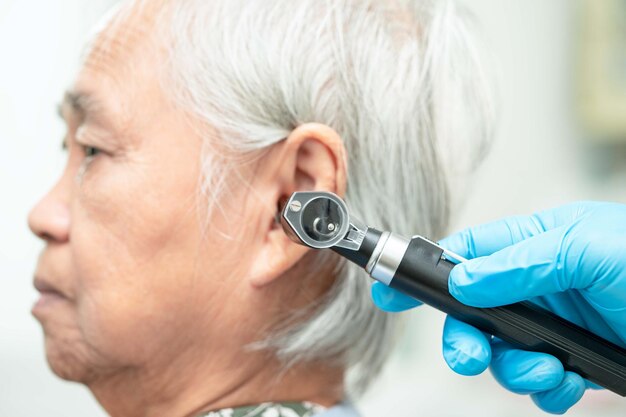Your Guide to Does Medicare Pay For Audiology Services
What You Get:
Free Guide
Free, helpful information about Medicare Insurance and related Does Medicare Pay For Audiology Services topics.
Helpful Information
Get clear and easy-to-understand details about Does Medicare Pay For Audiology Services topics and resources.
Personalized Offers
Answer a few optional questions to receive offers or information related to Medicare Insurance. The survey is optional and not required to access your free guide.
Does Medicare Cover Audiology Services? Here’s What You Need to Know
When it comes to hearing health, many people wonder, does Medicare cover audiology services? It’s a crucial question as hearing plays a significant role in our daily lives, especially for older adults who often experience varying degrees of hearing loss. Understanding whether Medicare provides financial assistance for these services can alleviate a lot of stress and help you plan better.
Medicare and Audiology Services
Medicare is a federal health insurance program primarily for people aged 65 or older, though it also covers certain younger individuals with disabilities and those with End-Stage Renal Disease. Medicare covers some audiology services, but not all. For instance, routine hearing exams and hearing aids are not covered under Original Medicare (Part A and Part B). However, if you require diagnostic hearing and balance exams, Medicare Part B may cover these when ordered by a doctor to determine if you need medical treatment.
Also, certain Medicare Advantage (Part C) plans might offer additional audiology services, including coverage for hearing aids. These plans are offered by private insurers and must provide at least the same level of coverage as Original Medicare, but many plans include additional benefits. Therefore, if hearing health care is a priority, exploring Medicare Advantage plans could be beneficial.
Exploring Financial Assistance Options for Hearing Services
Hearing healthcare can be quite expensive without insurance coverage. Fortunately, there are several programs and methods available to alleviate these expenses:
Medicaid: For those with low income, Medicaid may cover hearing aids and services, but it varies by state. It’s worth checking your state’s policy on audiology services.
Non-Profit Organizations: Numerous organizations offer help for those in need. Programs like the Hearing Aid Project provide hearing aids to people who cannot afford them, based on financial need.
Veterans Affairs (VA): If you’re a veteran, you might qualify for hearing aids and testing through the VA, which provides comprehensive hearing care.
State Programs: Some states have additional programs for hearing aid coverage for their residents.
Understanding Credit and Financial Solutions
If you're facing high out-of-pocket costs, you might consider financial solutions or using a credit card with special financing offers to pay for hearing services. Be sure to review the terms carefully to avoid high-interest debt. Alternative solutions include looking for educational and grant opportunities that can provide information and resources about managing these costs effectively.
Educational Grants and Resources
For younger individuals or those embarking on a career in audiology, scholarships and educational grants are available. They can offer financial relief and make it easier to afford the necessary educational costs associated with becoming a certified audiologist.
Taking charge of your hearing health doesn't need to be a daunting financial burden. By understanding your coverage options, exploring Medicare Advantage plans, and utilizing various financial aids and resources, you can ensure you're receiving the care you need. Always remember, prioritizing your health is an investment in your quality of life.
Quick Guide: Financial Assistance for Audiology Services
- 🏥 Medicare Advantage Plans: Check for additional hearing benefits covered.
- 💳 Credit Cards with Financing Offers: Look for cards with 0% APR periods to spread out costs.
- 🌐 Apply for Medicaid: State-dependent, but may cover hearing aids and services.
- ❤️ Non-Profit Aid Programs: Organizations like Hearing Aid Project offer support.
- 👔 Veteran Resources: Available through VA for eligible veterans.
- 📜 Explore State Programs: Check local programs for additional hearing aid coverage.
- 📚 Seek Educational Grants: Assistance for students and practitioners in audiology.
What You Get:
Free Medicare Insurance Guide
Free, helpful information about Does Medicare Pay For Audiology Services and related resources.

Helpful Information
Get clear, easy-to-understand details about Does Medicare Pay For Audiology Services topics.

Optional Personalized Offers
Answer a few optional questions to see offers or information related to Medicare Insurance. Participation is not required to get your free guide.


Discover More
- Am I Elgible For Medicare
- Am I Enrolled In Medicare
- Am I Qualified For Medicare
- Are Adult Diapers Covered By Medicare
- Are Chemotherapy Drugs Covered By Medicare Part d
- Are Colonoscopies Covered By Medicare
- Are Covid Tests Covered By Medicare
- Are Cpap Machines Covered By Medicare
- Are Cpap Supplies Covered By Medicare
- Are Dental Implants Covered By Medicare
